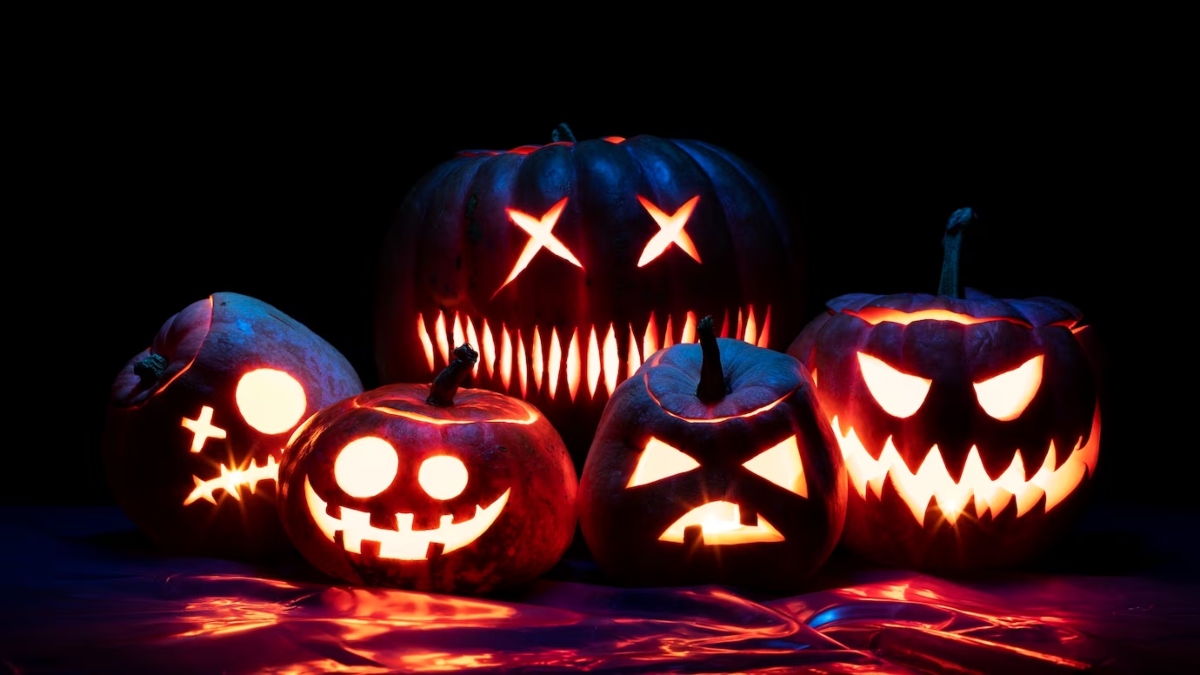Halloween, also known as All Hallows’ Eve, is a widely celebrated holiday in many countries around the world. It is typically observed on the night of October 31st and is characterised by costumes, decorations, and various traditions such as trick-or-treating. But have you ever wondered why Halloween is celebrated on this specific date? What is the history behind this spooky holiday? Here we will dive into the origins of Halloween and understand its significance and how it is celebrated today.
Origins of Halloween:
Halloween has its roots in the ancient Celtic festival of Samhain (pronounced as sow-in). The Celts, who lived 2,000 years ago, celebrated their new year on November 1st. This day marked the end of summer and the beginning of the colder, darker months. The Celts believed that on the night before their new year, the boundary between the living and the dead became blurred. They believed that on this night, ghosts would return to earth and cause mischief and harm to their crops.
To ward off these spirits, the Celts would gather around bonfires and dress up in costumes made from animal hides. They would also offer sacrifices to their gods, hoping for protection against these malicious spirits. This tradition was known as 'souling' where people would go door-to-door asking for food in exchange for prayers for the dead.
In the 9th century, Pope Gregory III designated November 1st as All Saints’ Day to honour all saints and martyrs. This feast was also known as All Hallows’ Day and the night before became known as All Hallows’ Eve, which eventually turned into Halloween.
Influence of Christianity:
As Christianity began to spread throughout Europe, many pagan traditions were incorporated into Christian beliefs. The tradition of 'souling' was replaced with 'soul cakes', which were given out to the poor in exchange for prayers for the dead. This practice was known as "going a-souling".
In the 11th century, the Church declared November 2nd as All Souls’ Day to honour the dead. This day was also a time for people to pray for their loved ones who had passed away. All Saints’ Day and All Souls’ Day were collectively known as Hallowmas, and the three-day celebration of Halloween, All Saints’ Day, and All Souls’ Day became known as Hallowtide.
Significance of Halloween:
Today, Halloween holds different meanings for different people. For some, it is a time to dress up in fun costumes and indulge in delicious treats, while for others it is a time to celebrate the harvest season. But at its core, Halloween is still a celebration of the cycle of life and death.
The themes of death and resurrection are reflected in many Halloween traditions. The carved pumpkins represent the souls of the dead, while the costumes and masks symbolize the boundary between the living and the dead. Trick-or-treating also has its roots in the ancient tradition of offering treats to the spirits to appease them.
Halloween is also an opportunity for people to confront their fears and embrace the unknown. The tradition of haunted houses and scary movies allows us to explore and experience fear in a safe and controlled environment.
Celebrations around the world:
Halloween is predominantly celebrated in North America, but it has gained popularity in other parts of the world as well. In Ireland, Halloween is still celebrated with bonfires, games, and traditional foods like barmbrack. In Mexico, the Day of the Dead is celebrated on November 1st and 2nd, when families gather to honour their deceased loved ones with offerings of food, flowers, and decorations.
In some countries, Halloween has been integrated into existing cultural and religious traditions. In China, Halloween coincides with the Hungry Ghost Festival, where people offer food and gifts to appease ghosts and ancestors. In Japan, Halloween has become an increasingly popular holiday thanks to Western influence.

